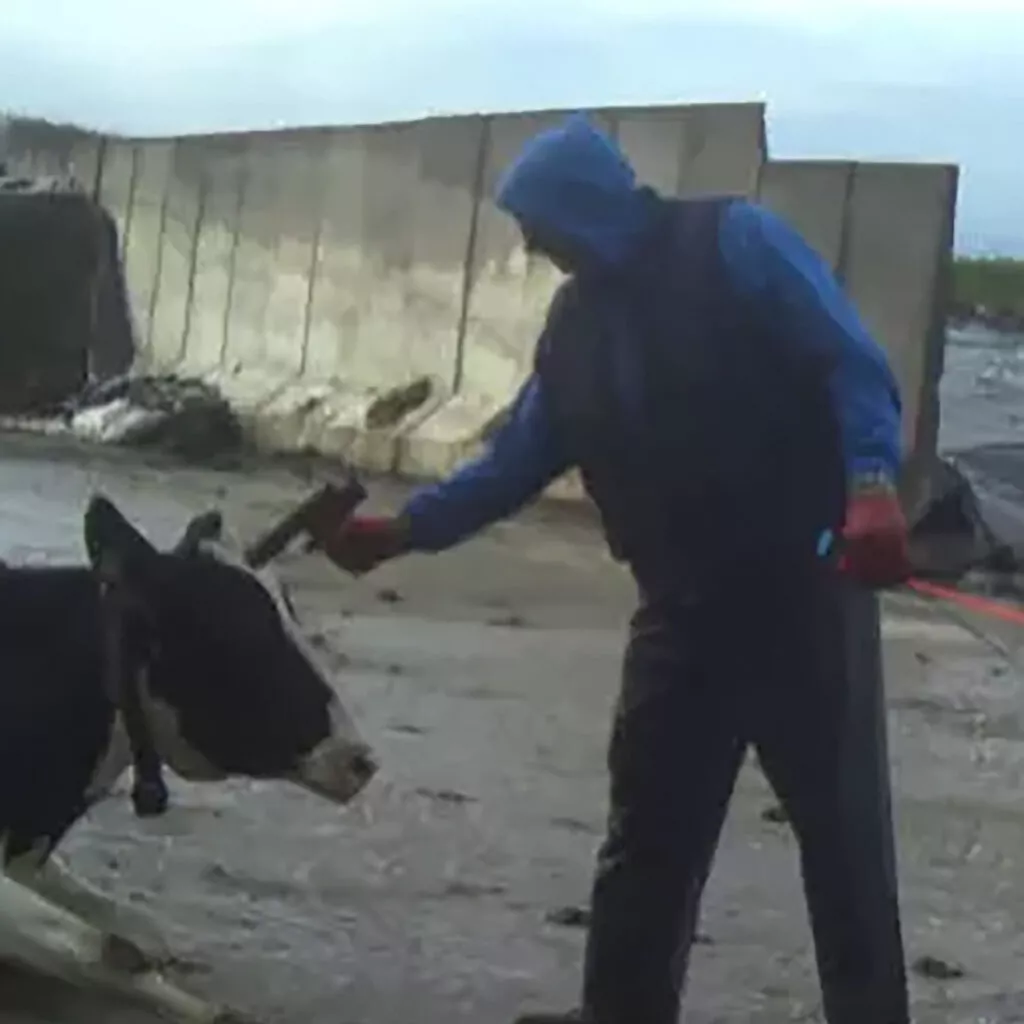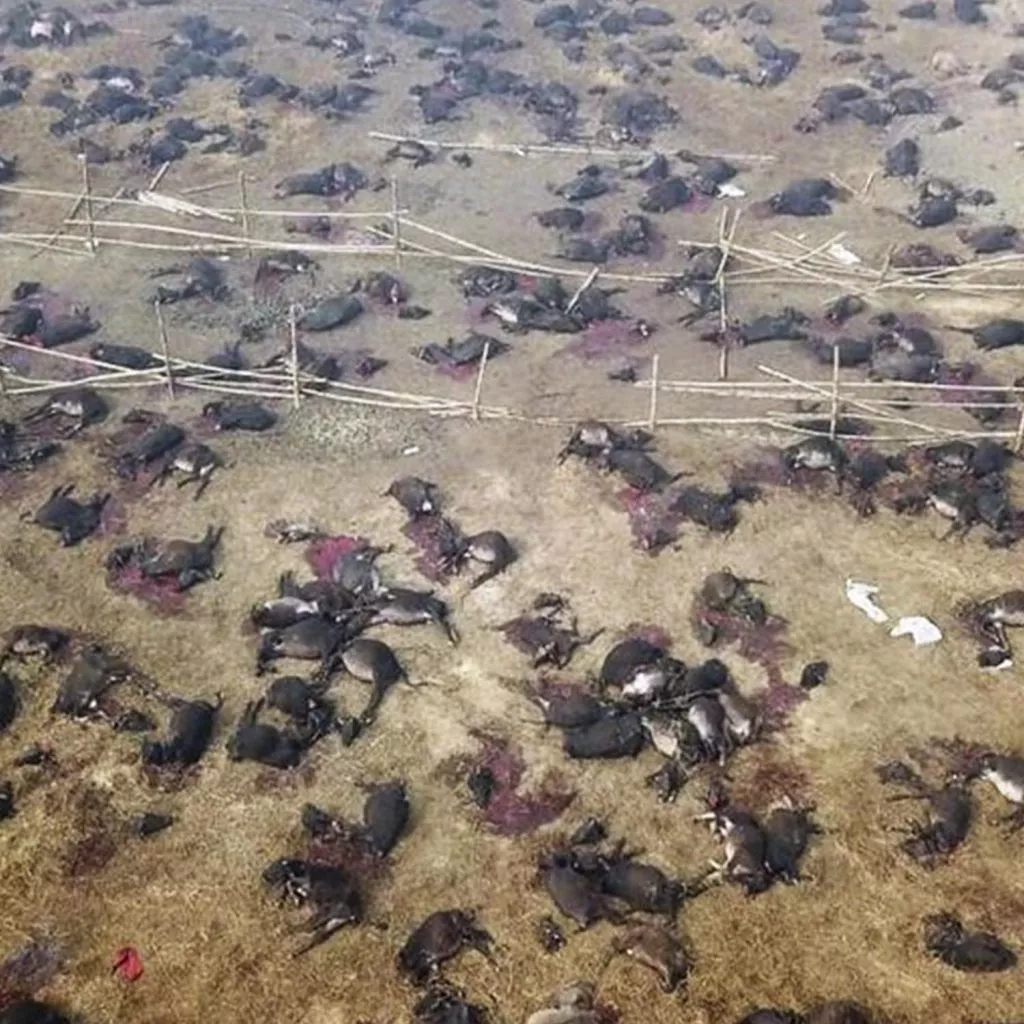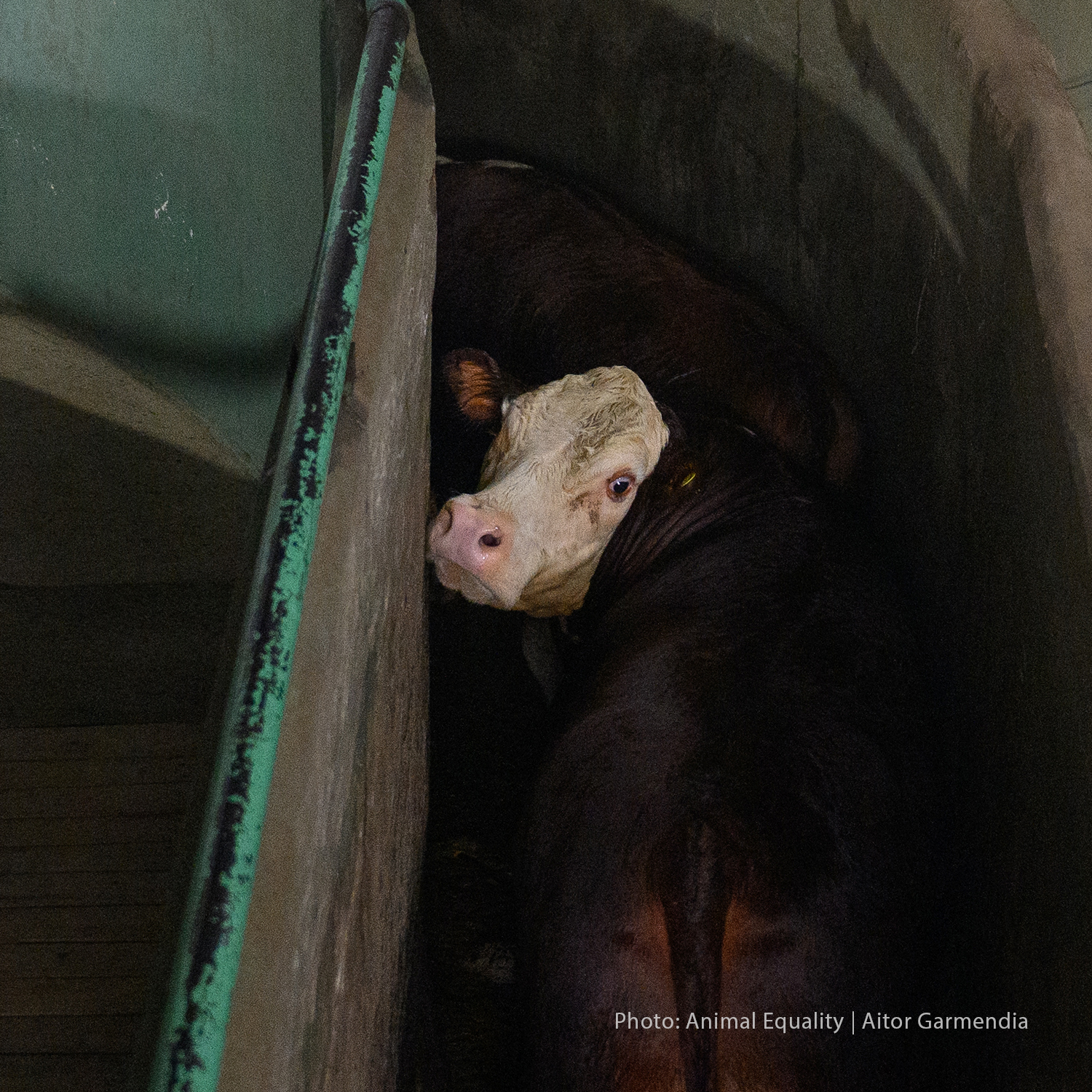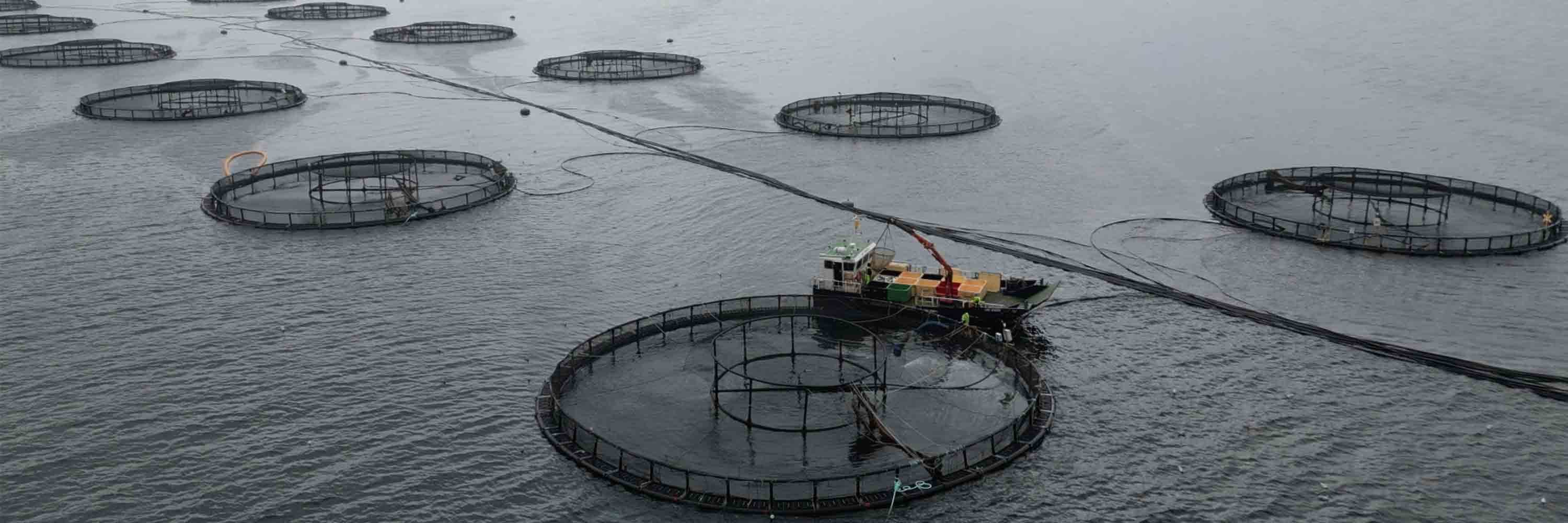
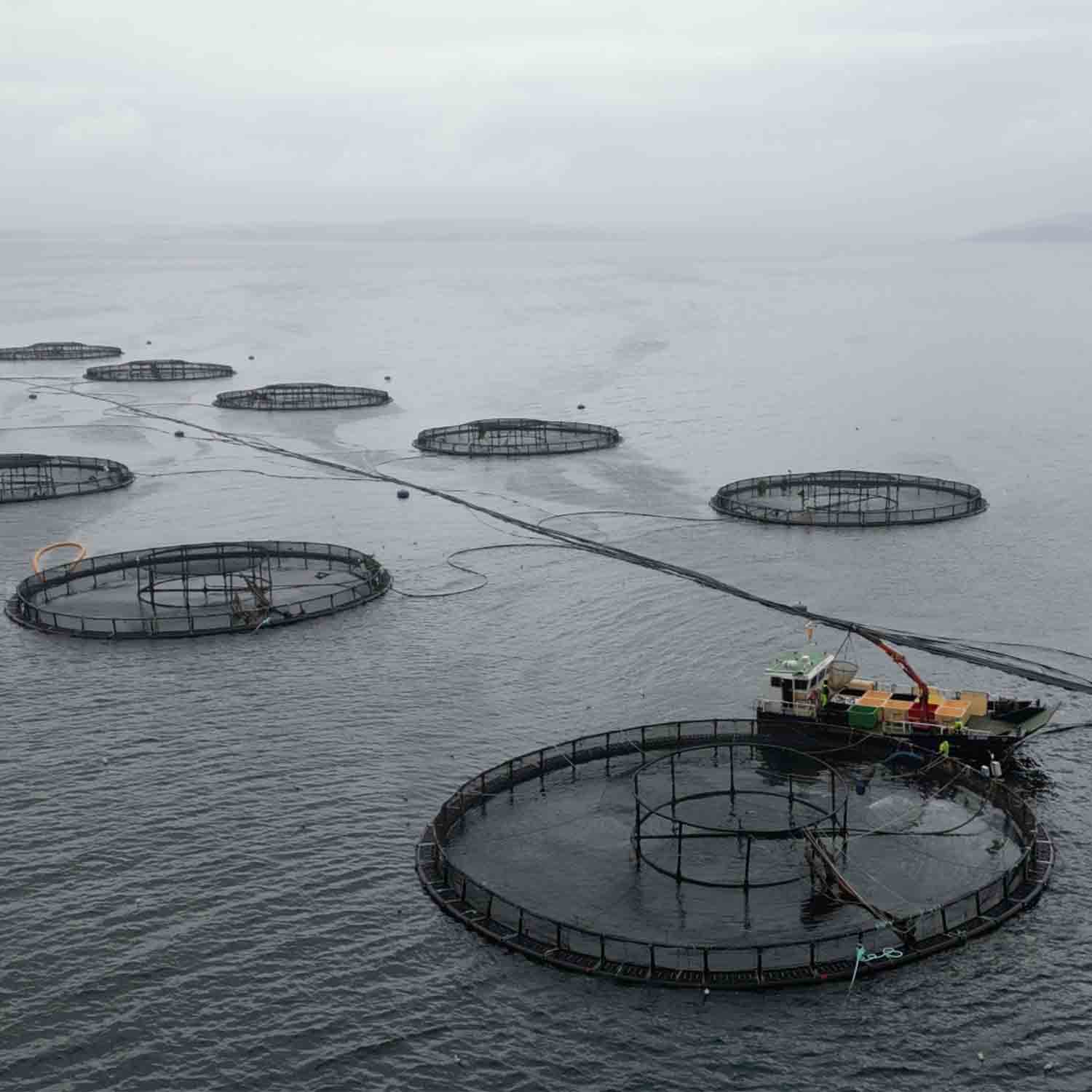
What is fish farming?
Fish farming, also known as aquaculture, is the fastest-growing animal agriculture industry in the United States. Within this industry, fish are raised in large groups inside tanks or cages. These animals are forced to live in poor water quality, with parasites feeding on the fish’s gills, organs, and blood. Most of the fish consumed by humans today are raised inland or on ocean-based aquafarms, spending their entire lives confined in tightly packed environments.
In recent decades, there has been a rapid increase in the killing of aquatic animals for food.
Within the US, farm-raised fish make up 90% of the fish slaughtered for human consumption. To increase profits, tens of thousands of fish are crammed into the smallest spaces possible. Large farms can span the size of four football fields and contain more than 1 million fish.
How does fish farming work
The fish farming industry has a variety of systems in place to increase production. The methods used depend on the species of fish being raised and the location of the farm. Fish farms are usually located inside small bodies of water, such as lakes or ponds, or in the sea along the coast.
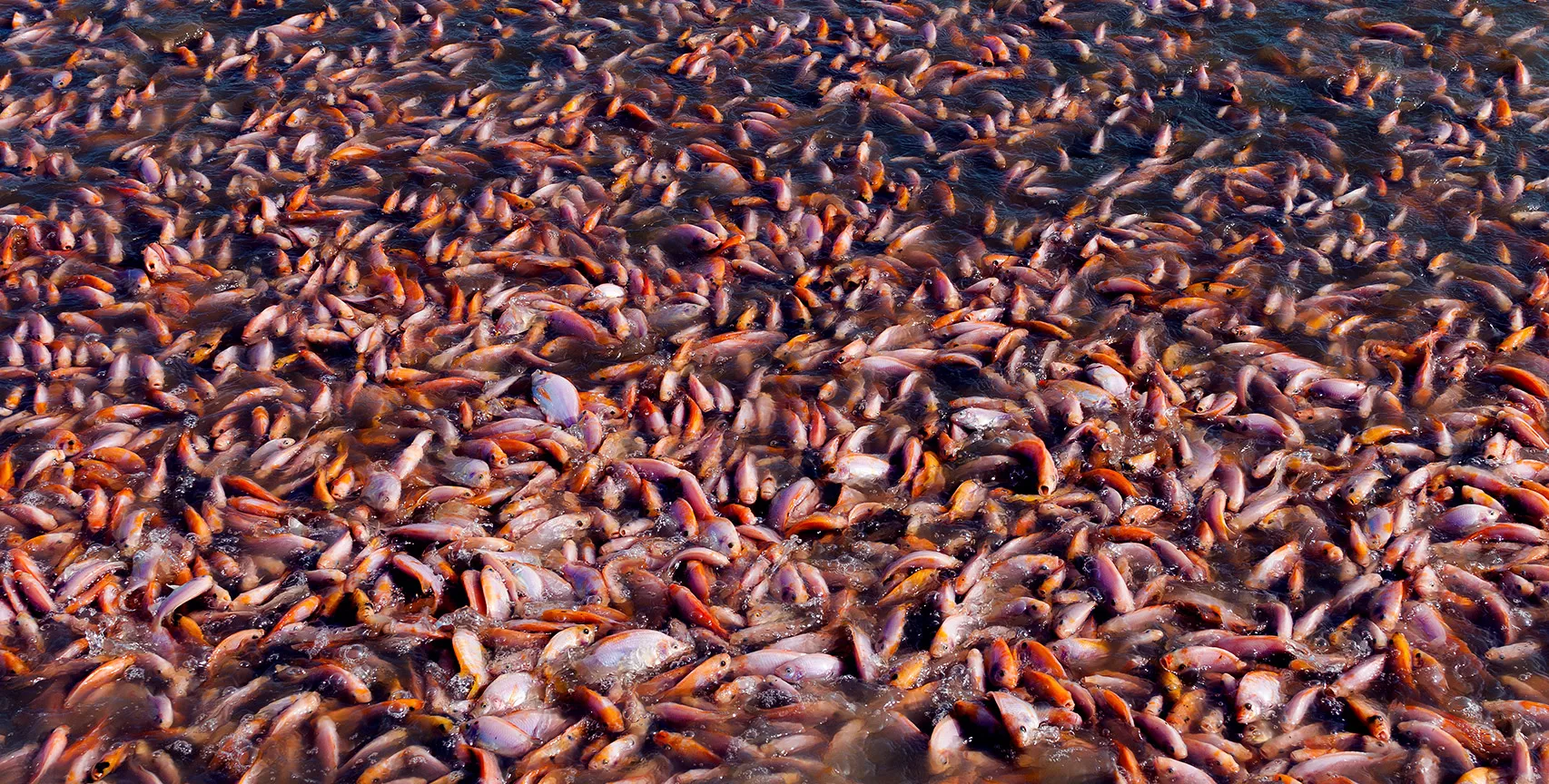
Fish kept in cages underwater
Modern cage culture systems are a highly productive form of industrial fish farming. Groups of fish are kept outdoors in densely packed underwater enclosures placed in natural bodies of water such as lakes, rivers, or oceans. The cages are usually made of mesh material and are suspended from buoys or anchored to the seabed.
Cage systems can be used for a variety of fishes, including salmon, trout, tilapia, and catfish. Most cage systems are open, letting water move freely through them while the fish are confined and allowing any chemicals or waste from the farm to escape uncontrolled into the surrounding environment. Fish in cage systems often experience stress and injury from crowding, handling, and exposure to extreme weather conditions.
Irrigation ditch or pond systems in fish farms
Irrigation ditch or pond systems are another method of fish farming that raises fish in ponds or ditches. In irrigation ditch systems, water is reverted from a natural water source into a series of interconnected channels known as ditches. This keeps fish tightly confined so their waste products can be used as crop fertilizer.
In pond systems, a pond, or series of ponds, is lined with materials such as clay or plastic. The ponds are designed so food can be grown for the fish to eat, making the enclosure presumably, “self-sustaining”. Unfortunately, fish suffer from severe stress and disease outbreaks due to high temperatures and low oxygen levels.
Integrated recycling systems in fish farms
Integrated recycling systems (IRS), also known as aquaponics, are a type of fish farming system that combines aquaculture (the raising of fish) with hydroponics (the growing of plants without soil). Integrated recycling systems involve the use of tanks or ponds to house the fish, along with hydroponic growing beds or towers for the plants.
In theory, the water from the fish tanks is circulated through the hydroponic system, providing nutrients for the plants without the use of soil. By absorbing the nutrients, the plants clean the water, allowing the water to be reused for the fish. However, these systems can also introduce E. coli into produce grown for human consumption from fish wastewater.
Can fish feel pain?
Scientists continue to agree that fish do have the capacity to experience pain and a range of emotions similar to humans and other animals. Fish have pain receptors that function like humans. They detect potential harm and create the sensation of pain, which encourages the fish to escape whatever is causing them harm, such as high temperatures, intense pressure, and chemical reactions.
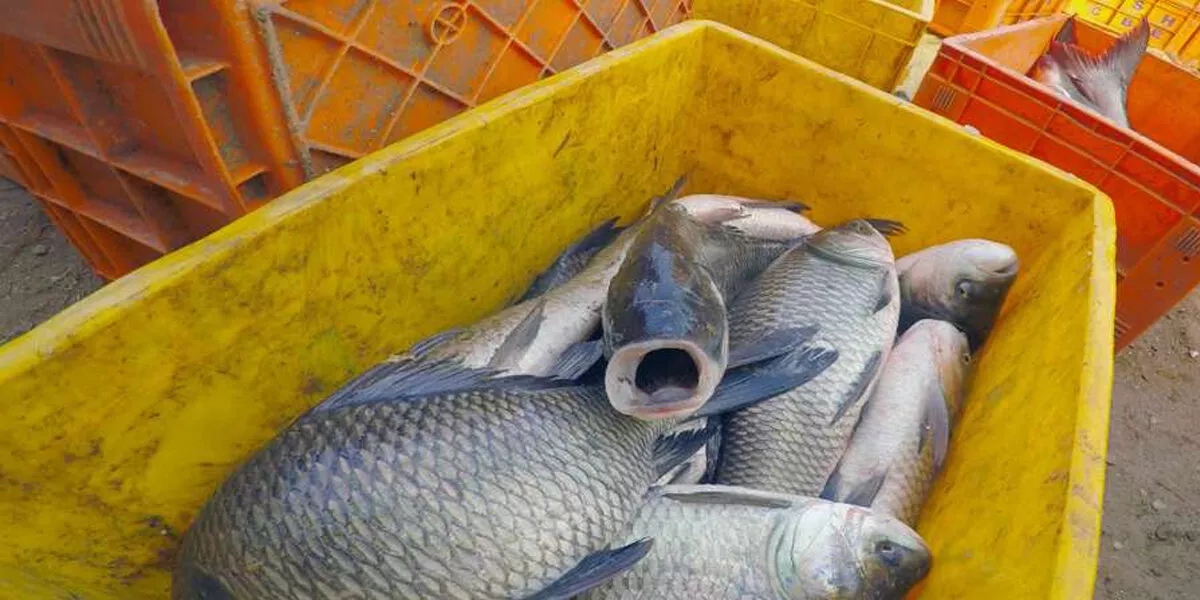
Studies have shown that fish have specialized sensory cells which exhibit behavioral characteristics and fear responses. This includes the rubbing of injured areas, altered swimming patterns, vocalizations, and changes in feeding behavior.4,5,6
Many fish farms suffer from infestations of sea lice, which eat the fish’s skin while they’re alive. In an attempt to fight sea lice, fish farmers resort to using chemicals or other harsh treatments. They may also use species of so-called ‘cleaner fish’ who eat the sea lice from the salmon’s skin. But there are few laws to protect these cleaner fish, and they will be killed along with the salmon when they are slaughtered.
One common method used to kill fish involves the fish being taken out of the water so that their gills collapse and they die from a lack of oxygen. Asphyxiation (suffocation) is very distressing for fish, and they frequently try desperately to escape. Other inhumane methods of slaughter include asphyxiation on ice, live chilling, bleeding, and electrocution.
Why is fish farming bad?
Intensive farms that keep unnaturally high numbers of fish in captivity create numerous concerns regarding environmental instability and inhumane slaughter methods.
As of 2019, fish belonging to the Cyprinidae (carp) family were the most farmed fish by quantity, accounting for nearly 25 percent of total global farmed seafood production. Other commonly farmed fishes include catfish, tilapia, salmon, and trout. The overcrowded fish population and tactics used to regulate these farmed systems are causing the release of hazardous chemicals into the environment, which is among the many problematic issues that have been raised by critics of fish farming.
Are fish protected by the law?
Fish have no legal protections in how they’re treated or slaughtered. Fish are not included in the Humane Methods of Slaughter Act, the only piece of federal legislation that exists to regulate the treatment of animals at the time of slaughter. As a result, the large population of fishes are not properly stunned (rendered unconscious or unable to feel pain) before being killed, leaving them fully alert and awake during the slaughter process.
According to the Animal Welfare Act (2006), fish are protected against ‘unnecessary suffering,’ and farmers are required to ensure that their ‘needs are met’. However, the law fails to provide specific rules and obligations. This leaves room for interpretation of what ‘unnecessary suffering’ means.
In practice, this means fish suffer, and nothing meaningful is done to stop it.
How can you help fish?
You can make a commitment today to protect fish every day. By simply choosing plant-based alternatives to meat, dairy, and eggs, you are denouncing the suffering of farmed animals every single day
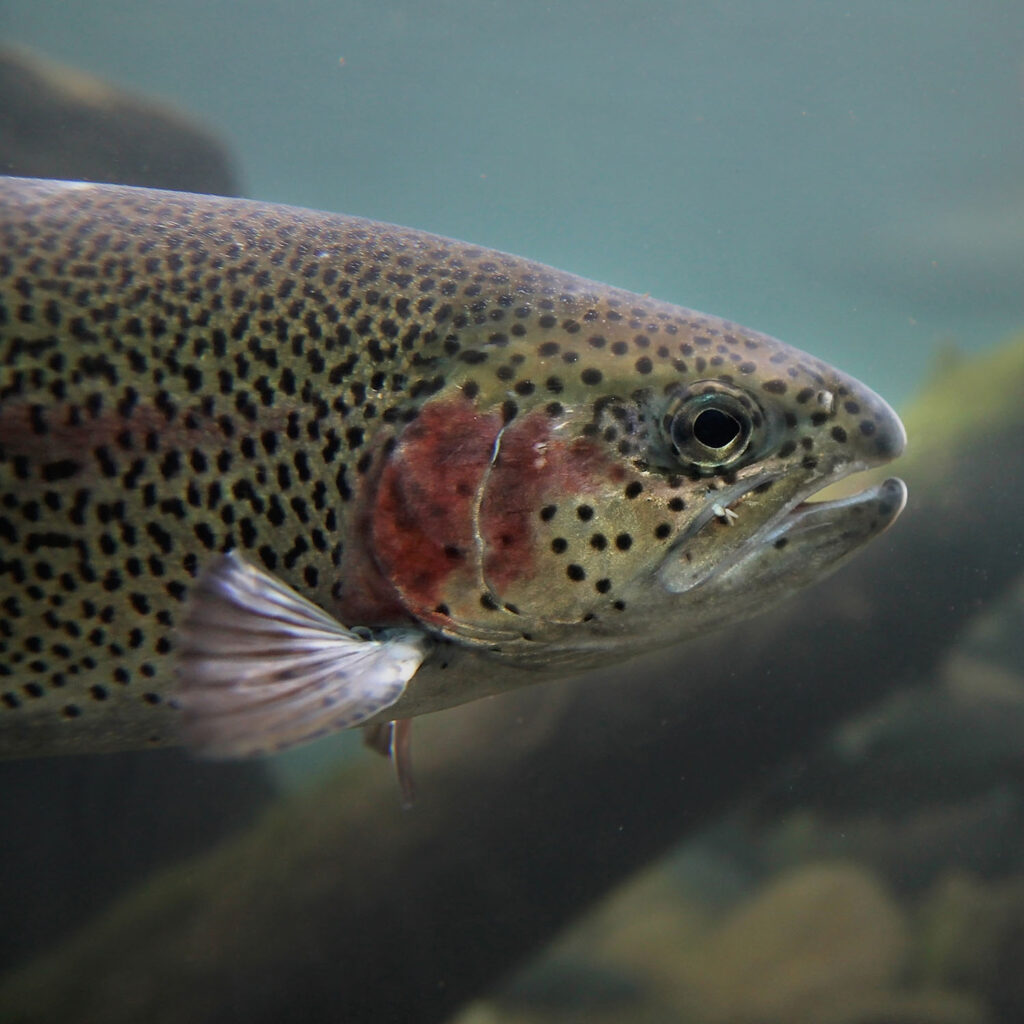
DEFEND FISH FROM ABUSE
Scientists confirm that fish have rich emotional lives and the capacity to feel.
Protect these sensitive beings by choosing plant‑based alternatives to animal food products.
1Food and Agriculture Organization of the United Nations (FAO). (2018). Cage aquaculture: Regional reviews and global overview. Rome.
2Bardach, J. E., Ryther, J. H., & McLarney, W. O. (1972). Aquaculture: The farming and husbandry of freshwater and marine organisms. Wiley-Interscience.
3Costa-Pierce, B. A. (2002). Ecological aquaculture: The evolution of the blue revolution. Blackwell Science.
4Sneddon, L. U. (2015). Pain perception in fish: indicators and endpoints. ILAR journal, 56(1), 29-38.
5Rose, J. D. (2002). The neurobehavioral nature of fishes and the question of awareness and pain. Reviews in Fisheries Science, 10(1), 1-38.
6Braithwaite, V. A., & Huntingford, F. A. (2004). Fish and welfare: do fish have the capacity for pain perception and suffering?. Animal Welfare, 13, S87-S92.
Recommended
